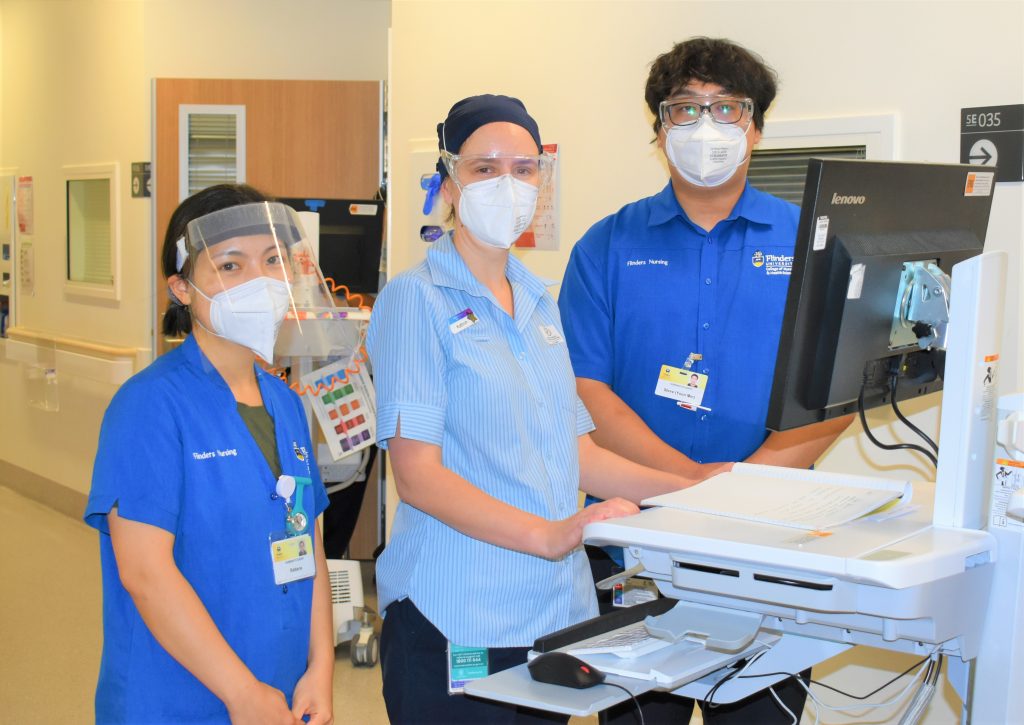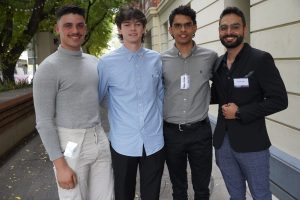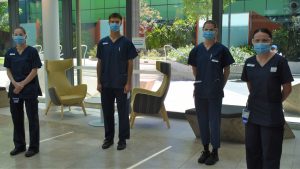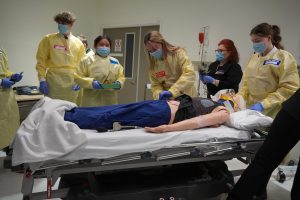South Australian student nurses are benefitting from the pandemic’s once-in-a-lifetime opportunity to gain clinical insight and practice and build critical hands-on skills that will help shape their future careers.
Accredited Bachelor level nursing programs include clinical experience as a requirement for graduation, with students undertaking placements in each of their three years of study.
For those completing courses at the University of South Australia, University of Adelaide and Flinders University, final year students embark on a six to eight-week placement ahead of graduation.
The hands-on job experience prepares nursing students for a diverse patient-care environment in a variety of settings, with clinical placements providing the important opportunity to transfer theory into practice before beginning their careers.
Flinders University third year student nurse, Steve, was grateful to be among more than 200 student nurses receiving on the job training during the height of the Omicron wave of community transmission.
“When I graduate in a short time, this will be my reality so it’s better for us to experience this right now because its really meaningful and such a great opportunity to learn,” he says.
“I’m pleased I can be part of the team, a small but extra pair of hands for patients and staff.
“The nurses here are doing a fantastic job and its an honour to help them out.”
Rattana is also enjoying the diversity of learning opportunities she is gaining during her placement on Ward 5EE at the RAH.
“It’s such a good learning experience at this time,” she says.
“There’s a huge variety of patients, coming from lots of different areas, so there is more opportunity to learn.”
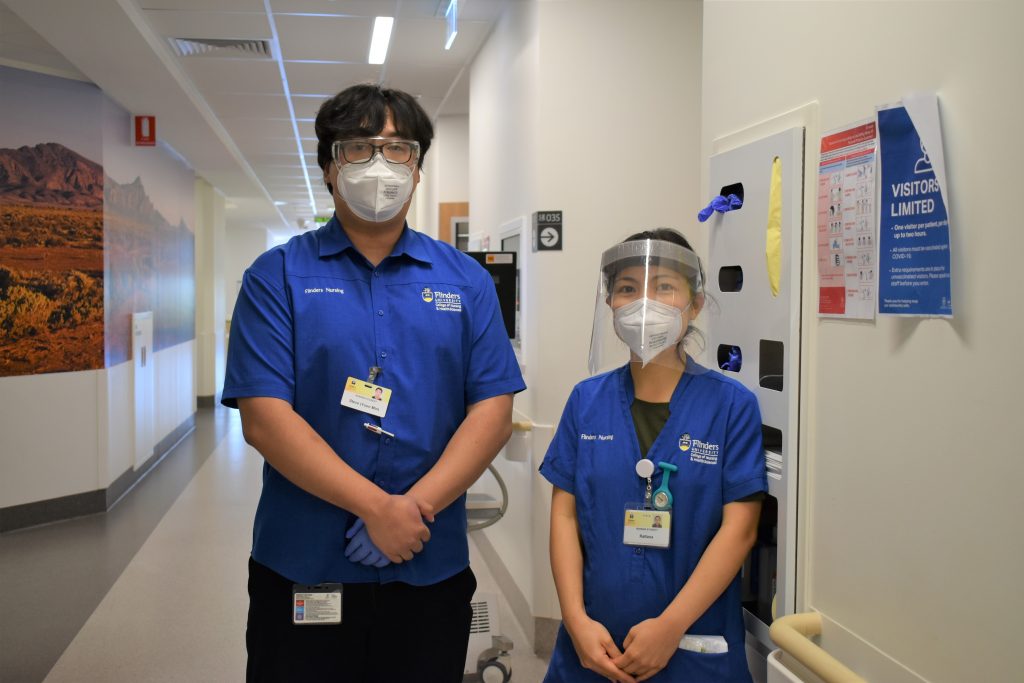
Royal Adelaide Hospital Acting Nurse Lead Surgery, Davina Mungall, says clinical experience was vital for all nursing students.
“Obviously students are not expected to know everything however exposure to the clinical environment offers opportunities they can’t obtain by attending university.
“You don’t learn how to prioritise your workload and communicate with people from different backgrounds and job roles from a textbook or campus environment.
“Students can’t learn how to interact with a distressed family member, or how to sit with someone who is frightened about an upcoming surgery – that real-world experience can only be learnt when immersed in the real world environment.”
The students carry out a range of tasks, depending on their progress through their course.
“First year students perform more basics tasks whereas final year students are about to step into a position as a registered nurse, so those students will spend their placement with the shift co-ordinator, so they have an understanding of how wards and hospitals operate.
“For those about to graduate, two weeks after the placements they are ready to be registered and begin their careers, so it’s really important we can provide them with the training and experience to ensure they are ready to go and as prepared as possible.”
Experienced nurses also benefitted from the presence of student nurses.
“It’s good for students and the nurses,” she says.
“Often you don’t think about why you are doing something and when a student asks a question you step back and actually think about it, so it’s a really good opportunity to consider evidence-based practice and ensure a patient-focused approach to care.
“Also, generally students are enthusiastic because they are embarking on the start of their journey to enter the profession, they want to learn, and that enthusiasm can be contagious.”
Gaining clinical experience in the midst of a once in a generation pandemic offered many advantages for this cohort, she says.
“They are able to observe firsthand how a workforce needs to be flexible, they will recognise the importance of teamwork and see how important it is to offer and receive support.
“It is an interesting and hopefully once in a lifetime experience.”
She was impressed by the student’s contribution at a time when the healthcare system was under pressure.
“They have shown really good resilience and flexibility and have been extremely helpful,” she says.
